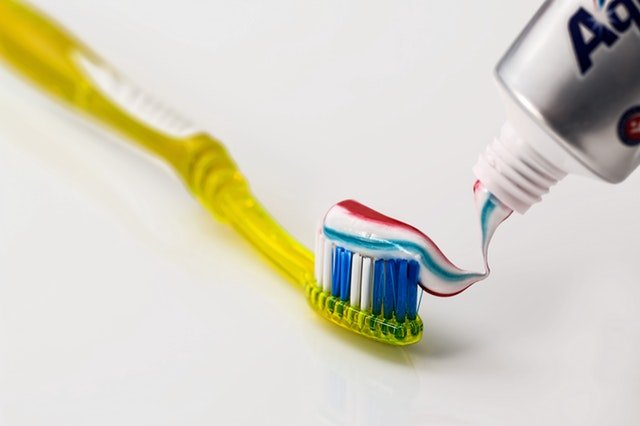
In a new study, researchers found a common chemical in soap and toothpaste may actually make germs stronger.
The chemical is called triclosan, and it could make germs more capable of surviving antibiotic treatment.
The research was conducted by a team from Washington University in St. Louis.
Triclosan is the active ingredient responsible for the “antibacterial” property in many consumer products.
It is commonly put in mouthwash, toothpaste, cosmetics, and even clothing, baby toys, and credit cards.
Previous studies have shown that triclosan is added to products at high concentration to kill bacteria.
FDA in 2017 recommended against triclosan due to safety concerns and lack of efficacy.
However, many companies still add this chemical to daily products.
In the current study, the team examined if triclosan could protect bacteria from death in the presence of killing antibiotics.
Antibiotics could kill bacterial cells and is used to treat bacterial infections.
The researchers treated bacterial cells with antibiotics and tested their ability to survive over time.
There were two experimental groups. In one group, the researchers exposed bacteria to triclosan before giving them the bactericidal antibiotic. In the other group, they did not.
They found triclosan made more bacterial cells survive the antibiotics. So instead of only one in a million bacteria survives, one in 10 organisms survived after 20 hours.
Furthermore, the protective effect was found in multiple antibiotics.
This could help understand why triclosan exposure limits the effect of antibiotic treatment for diseases like urinary tract infection.
The disease often occurs when bacteria enter and infect the urinary tract.
Antibiotics such as Cipro are commonly used to kill the bacteria and treat the infection.
But because many people have detectable levels of triclosan in their body, it could make it harder to treat the disease.
The team examined mice that drank triclosan-spiked water. The mice also had urinary tract infection.
They found that after antibiotic treatment, mice with triclosan exposure had a large number of bacteria in their urine and stuck to the bladder.
The result showed 100 times more bacteria in the urine of triclosan-treated mice than mice without exposure.
The researchers suggest that triclosan could increase tolerance to a wide range of antibiotics.
Future research needs to confirm that triclosan is interfering with antibiotic treatments in humans.
One author of the study is Petra Levin, a professor of biology at Washington University in St. Louis.
The study is published in Antimicrobial Agents & Chemotherapy.
Copyright © 2019 Knowridge Science Report. All rights reserved.
Further reading: Antimicrobial Agents & Chemotherapy.



